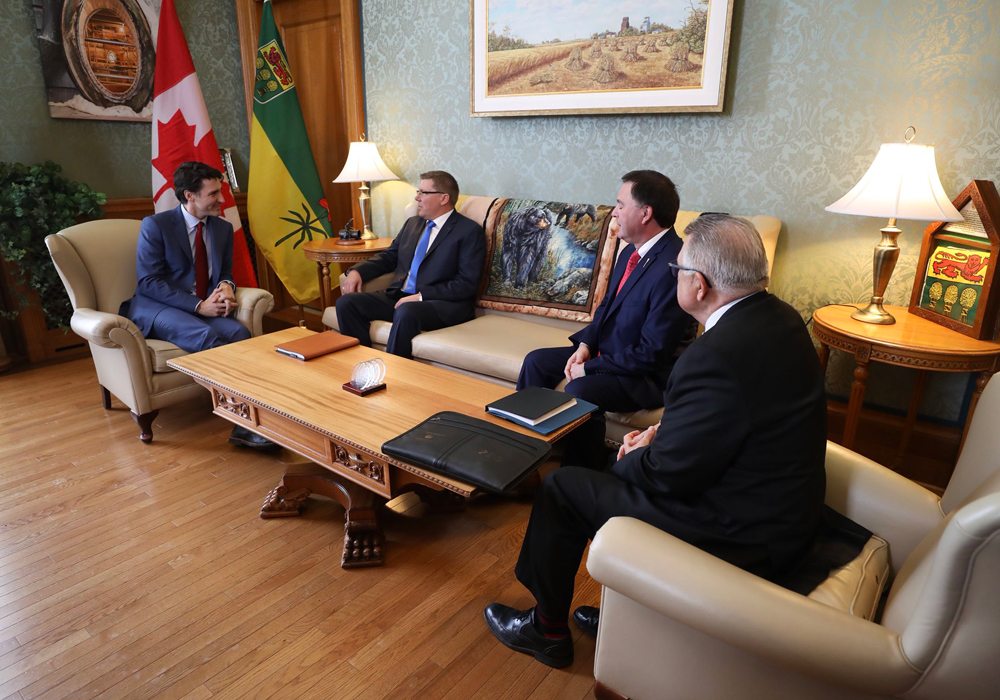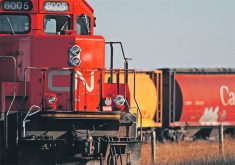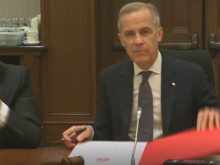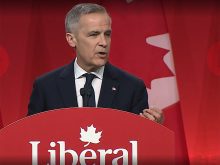The first meeting between Saskatchewan Premier Scott Moe and Prime Minister Justin Trudeau, unsurprisingly, did not result in an agreement on carbon pricing.
Saskatchewan continues to oppose a carbon tax and is the only province that hasn’t signed the Pan-Canadian Framework on Clean Growth and Climate Change. The province is currently consulting on the climate resilience plan it presented last December, saying there are better ways to reduce carbon output than a tax.
But Public Safety Minister and Regina-Wascana MP Ralph Goodale, who was also in the March 9 meeting in Regina, suggested the province could work within the federal plan to its residents’ advantage.
Read Also

Agritechnica Day 2: The future of tractor power, building quicker crop apps and large farms and tech
Agritechnica Day 2: The future of tractor power, building quicker crop apps with Syngenta and large farms and tech
For example, he told reporters carbon tax revenue could be used to permanently reduce property tax on farmland. He said that would be popular in rural Saskatchewan.
“Most farmers are practicing zero till and have for a long time and are therefore creating a significant amount of carbon sink capacity simply by the way they farm their land,” he said. “You could reward that and provide an incentive to do even more of that, or use crop rotations that lock certain chemicals in the soil and so forth.”
This afternoon in Regina, I had a great first meeting with @PremierScottMoe, focused on how we can work together on infrastructure and trade to create jobs & growth for people in Saskatchewan. pic.twitter.com/X2X5nnpfg9
— Justin Trudeau (@JustinTrudeau) March 9, 2018
Reducing income tax or PST, or cutting royalties are other options, Goodale said. Systems that exempt virtually all the cost on farmland or junior oil and gas companies can be devised, he said.
Moe said the issue was discussed during the meeting and Saskatchewan continues to focus on real reductions.
“We did have a discussion with respect to agriculture and carbon sinks, and more specifically to the opportunity of taking some of the technology and knowledge that we have in zero till, carbon capture and storage and such, and exporting that to other places around the world, where I’ve always put forward is the real opportunity,” the premier said.
The leaders also talked about equivalency agreements on coal-fired electricity generation and methane emissions.
“Those equivalency agreements are paramount in us achieving some of the targets that we’ve put forward,” Moe said.
Meanwhile, the recent Canadian Federation of Agriculture annual meeting endorsed several carbon and climate change resolutions put forward by the Agricultural Producers Association of Saskatchewan.
APAS president Todd Lewis said farmers continue to work with the Saskatchewan government but recognize the need to take Saskatchewan-based research further.
For example, one resolution called on CFA to lobby the federal government for funding to expand the Prairie Soil Carbon Balance Project to Manitoba and Alberta, and to include measurements of crop rotations, forages and grasslands in the project.
The project is one of the longest running on carbon sequestration; it has been sampling fields in Saskatchewan since 1997 to measure changes from direct seeding.
Other resolutions ask for research into crop varieties that would increase carbon sequestration through innovation such as larger root mass and increased photosynthesis, and measuring agricultural carbon sinks.
“The biggest thing we see with the Saskatchewan plan is the concept of offsets,” Lewis said. “Canada needs the offsets.”
Member organizations agreed to support developing voluntary carbon offset programs that, among other things, provide a fair price to producers for voluntary sequestration or emission reductions, allow aggregation and stacking of credits, and provide support to existing sinks such as wetlands and grasslands.
Lewis said in many other provinces, agriculture hasn’t been well served by carbon plans, resulting in unintended consequences, such as greenhouse operations moving south to the United States.
Contact karen.briere@producer.com
















